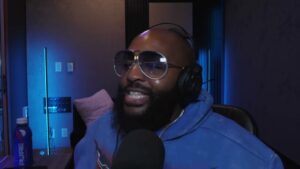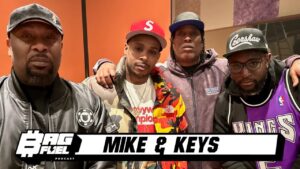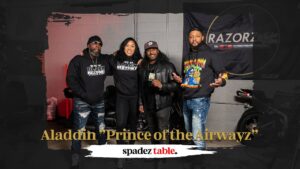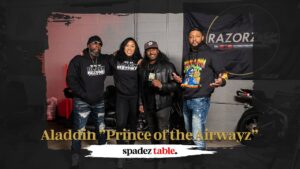Emerging DMV artist Jet Plane recently stopped by Pass Da AUX for an in-depth interview, discussing his musical journey, creative process, and how his sound has evolved over time. While a Prince George’s County native, Jet Plane doesn’t feel his style is directly influenced by the traditional DMV sound. Instead, he credits his late friend Fame Re for inspiring his ability to rap on the spot, pushing him to develop a more freestyle-heavy approach early in his career.
Unlike many artists from the DMV, Jet Plane doesn’t rely on the region’s signature flows or production styles. He emphasizes that his process is distinctly his own, drawing from personal experiences rather than local trends. Though influenced by the energy and creativity of DMV rap, his sound is a reflection of his own artistry rather than the regional scene.
When it comes to writing, Jet Plane prefers a structured approach but acknowledges the power of an impactful opening line. He believes that a strong first bar grabs the listener’s attention immediately, setting the tone for the entire track. “As long as the beat is fire and you say something crazy in the beginning, people are locked in,” he explains.
For Jet Plane, the defining moment wasn’t during a freestyle session—it was the first time he heard himself on a recorded track. His first song, released in 2016, may not have been perfect, but the experience of listening to his own voice ignited his passion for making music. Comparing it to looking at a baby picture, he recognizes how much he’s grown, from carefree recording sessions to meticulously crafting every detail of his music, from mixing and mastering to vocal delivery.
Jet Plane admits to constantly revisiting his older tracks—not just out of nostalgia, but as a way to analyze and improve his sound. He listens critically, identifying areas where he can grow and evolve. “The more I listen, the more I can improve,” he shares, highlighting his dedication to continuous artistic growth.
Interestingly, Jet Plane enjoys working on the final verse the most. To him, the last verse is like rounding third base in baseball—it’s where he pushes himself the hardest to deliver a strong finish.






